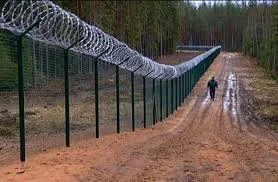Since the Russian invasion armies crossed the Ukrainian border, over three and a half million Ukrainian refugees have crossed several European borders, seeking refuge from the destruction of their country. Across Europe people manifest their solidarity with the plight of the people from that beleaguered country whose name, significantly, means ‘Border land’.
Read MoreThis article explores the Gospels and Acts to make an argument that the mission of Jesus to make disciples of all nations in the world, is a call for his followers to cross all kinds of borders to bear witness to his name. Focusing on geographical borders, I argue that diaspora people – those who had crossed physical borders – played a significant role in the spread of Christianity right from its inception.
Read MoreI grew up in Estonia, behind the Iron Curtain, the heavily militarised border between Western capitalist countries and the Communist Bloc led by the Soviet Union. For me a border to the world outside was set in stone or in iron. Crossing was impossible.
Read MoreThe start of the book of Genesis, and the story of the church from Acts onwards, are about humanity as a whole. In between, through the Old Testament and the Gospels, the focus is tightly on the nation of Israel. It is interesting that at the two transition points of Genesis 11 and Acts 2, we have stories about language: the tower of Babel and the day of Pentecost.
Read MoreI am a jobbing sociologist, and the word Shibboleth has found a home in my discipline. It is used to describe the cultural markers which groups use to define who they are – separating “Us” from “Them”. It’s part and parcel of Othering; fostering group solidarity by exclusionary practices. There are many effective shibboleths. The word most often describes language codes but there are broader applications and a plethora of cultural practices which politicise difference.
Read More




